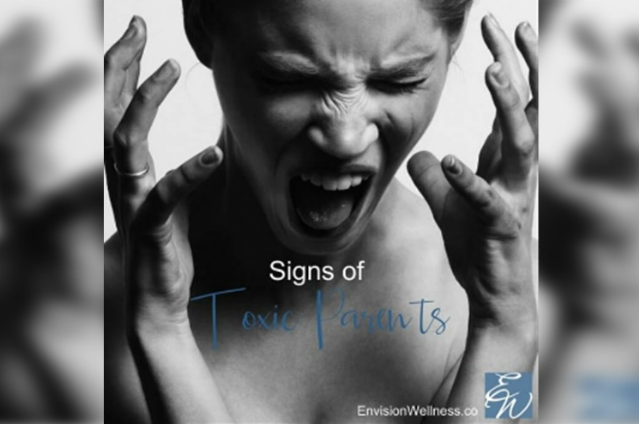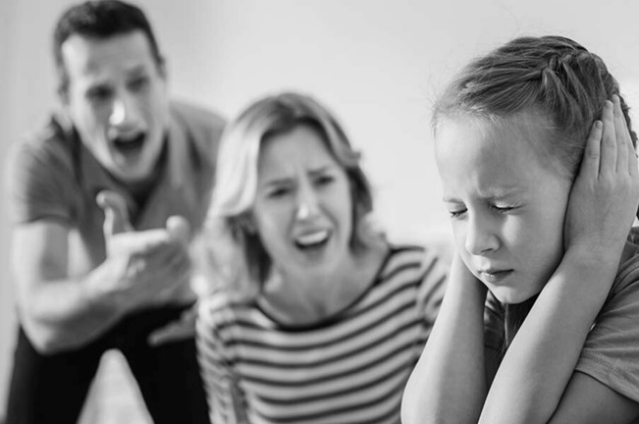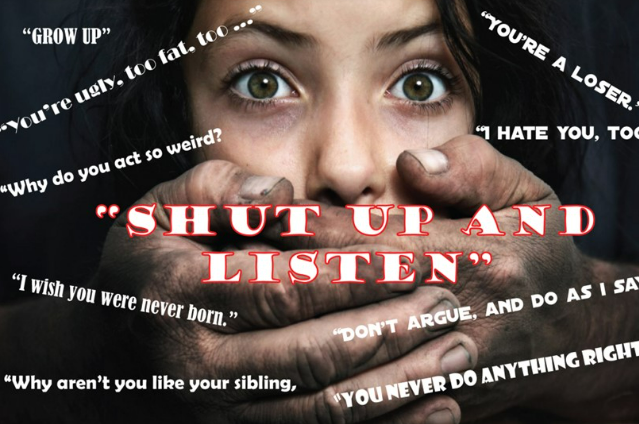TOXIC PARENTING: A SERIOUS ISSUE
Toxicity' is a phrase which not only exists in relationships with friends or mates but also comes from Parenting. There are people who always lift us up, encourage and support us whenever we need it, and on the other side, there are people who demotivate and tear us down, lower our self-esteem and confidence or cause us pain. Bitter truth is that sometimes we witness these types of people as our parents. A healthy parenthood is the only kind of therapy for a child to encounter every kind of daily hassle and stress to further experience better adulthood.
THE EFFECTS OF TOXIC PARENTING:

Nowadays in this malicious society, ' toxic parenting ' has really been taboo. Toxic parents create negativity, fear, guilt, and abuse as a tool to fulfill their unrealistic expectations and satisfy their wishes which they desire. This also gets visible in their behaviour, they are often emotionally unavailable, neglectful and abusive. For which, it results as threats and stress to the children. In psychology, the term is used mostly to describe toxic parents as ' narcissistic parents ' who suffer from personality disorders. They put their own needs before their children. Children who live in this kind of dysfunctional enviornment suffer from emotional distress on a daily basis. Children become nonchalant, non-expressive and depressed at a very early age because of experiencing emotional traumas and getting insulted by parents either alone or in front of everybody which makes them feel inferior and guilty even if they are innocent. And the stereotypical society blames on these children for who they are and why they behave such. Parents controlling their children by saying, "We will not allow you to study out of the city !", You are not allowed to get a personal cellphone", "You are not allowed to make any friend of your choice", results as an introvert personality of the child for which he/she becomes homesick and suffers from anxiety of loneliness, low self-esteem, lack of communication, hiding feelings, having the urge to give up, and not capable to co-operate with a new environment. Parents checking their child's personal phone to know whom he is chatting with, where he is going and with whom he is going affects an invasion of privacy. This intends to develop fear of getting scoldings, unnecessary restrictions and getting misunderstood by parents. Some of the parents neglect their child-like leaving them to go to school alone by themselves, not getting acquainted to their child's academic performance and being emotionally unavailable for their children, which misleads the children to get into bad company. Physical abuse has also been thorough malpractice done by the parents in day-to-day life. Verbal abuse such as yelling instead of comforting them by words, comparing their child with others by telling, " Everyone around you is so quiet, why are you the odd one?", " Boys don't cry, you should be brave.", " Why did you get so less grades than your friend?", " Look at him, he is so much better than you in studies.", indicates parents' selfish attitude toward their children and over expecting things from them that they desire. This makes the child question himself, " Am I not worth it?", " Do I fail to live up to my parent's expectations?", " Am I not trustworthy?". Mental abuse like criticizing, taunting, laughing, and comparing their children in front of their friends gives a message of shame to their children which makes them feel insecure and develops self-doubt. Toxic parents never ask which problem has been affecting their child, making him behave that way but always want to be strict. Self-centered and manipulative parents lack boundaries which results in toxic parenting. Stubborn attitude of parents causes children to adjust to them uncomfortably. Emotional harassment causes children to suffer from anxiety and loneliness. Toxic parents see their children as selfish adults, who are a burden to others and hurt everyone. Divorced parents, which has really been a common trait of this society, disturb the whole environment and mental health of the child, because parting of parents lack love, care and affection from one of them towards their children, due to which the lack of proper parenting occurs. Toxic parenting has really been a disturbance in the relationship with their kids in this generation, due to which all the kids are depressed and are blamed for their own behaviour.

WAYS TO DEAL WITH:
We can file a divorce against our partner if the relationship becomes bitter and abusive, and we can cut off relation with a friend if that becomes toxic, but can we part ourselves away from our parents? The answer is No!, instead of that, we can find solutions by understanding their part of the story, reviewing our own mistakes, understanding their problems, and having healthy communication with them. But even if the toxicity continues, the only solution is to maintain distance from parents, maintain personal space, move on by sorting within ourselves, correcting our own mistakes, face everything and rise, try to connect with our inner child, and educate that children should not be treated this disrespectfully and raised till adulthood, setting goals and proving them that we are capable of doing anything sufficient, being creative, think positive, love ourselves and trust the process.
CONCLUSION
This issue should really become important for our parents to understand and give attention to this for securing their child's mental well-being. Bright students and good grades do make a student healthy and successful in all means, which only parents expect from their children. But this is not all a child should acquire to maintain a healthy life. Mental peace and exhaling negativity help in the healthy development of a child. Parents should first appreciate their children for their efforts at their best performance before pointing out their mistakes. Instead of yelling at children, parents should have clear healthy communication with their children to fix the problem they are facing with. Proper development of childhood is necessary for better adulthood so that they do not step into toxicity in parenthood.

END NOTES
- To set boundaries for ourselves and our parents as well which we are not allowed to cross.
- Make a healthy and mutually understandable communication about what we really want to convey.
- Make a list of principles we want to change and improve.
- Prioritise each principle.
- Make a table of reactions we urge to do, next to each behaviour of the parents, which is legally right and respectful.


